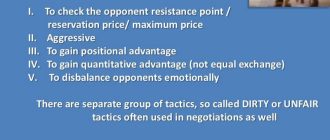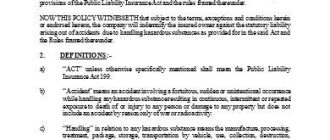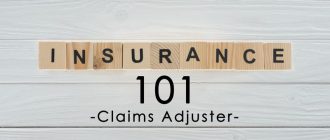
How Education and Training Shape a Top Insurance Adjuster.
Becoming a top insurance adjuster requires a combination of education and training that shapes professionals into skilled experts in their field. An insurance adjuster is responsible for evaluating claims, determining coverage, and negotiating settlements on behalf of insurance companies or policyholders. To excel in this role, individuals must possess a strong foundation of knowledge and skills.
Education plays a crucial role in the development of a top insurance adjuster. Many adjusters obtain a bachelor’s degree in a field such as finance, business administration, or risk management. These programs provide a comprehensive understanding of insurance principles, policy interpretation, and legal regulations. Additionally, coursework in communication and negotiation skills prepares adjusters to effectively communicate and resolve disputes with claimants.
However, education alone is not enough to become a top insurance adjuster. Training is a vital component in shaping professionals’ expertise and practical abilities. Insurance companies often provide comprehensive training programs that cover topics such as claims handling, industry-specific software, and customer service. These training programs allow adjusters to gain hands-on experience and learn the intricacies of the insurance claims process.
In addition, top insurance adjusters continuously seek professional development opportunities to enhance their skills and stay up-to-date with industry trends. They may pursue certifications such as the Chartered Property Casualty Underwriter (CPCU) designation or attend workshops and seminars to expand their knowledge.
The Importance of Education and Training for Insurance Adjusters
Education and training play a crucial role in shaping a top insurance adjuster. As professionals in the insurance industry, adjusters are responsible for evaluating and settling insurance claims. They act as the liaison between policyholders and insurance companies, ensuring that claims are accurately assessed and resolved.
Insurance adjusters need a deep understanding of the insurance industry and the claims process to perform their job effectively. This knowledge is gained through a combination of education and training.
Education provides the foundation for insurance adjusters to develop the necessary skills and knowledge. A formal education in insurance, such as a degree in risk management or insurance, equips adjusters with a comprehensive understanding of the industry. Courses in claims handling, policy interpretation, and insurance law are essential for mastering the complexities of the job.
Training, on the other hand, focuses on the practical application of knowledge and skills. Insurance companies often provide specific training programs for adjusters to familiarize them with company policies, procedures, and software systems. These programs also cover negotiation techniques, customer service, and communication skills, which are vital for dealing with policyholders and colleagues.
Continuous education and training are crucial for insurance adjusters to stay updated with the latest industry trends, regulations, and best practices. Many insurance organizations require adjusters to complete regular continuing education courses to maintain their licenses and certifications. This ongoing learning allows adjusters to enhance their expertise and adapt to the changing needs of the insurance industry.
The combination of education and training shapes a top insurance adjuster by providing them with the necessary knowledge, skills, and tools to excel in their profession. It enables them to accurately assess claims, negotiate settlements, and provide exceptional customer service. Additionally, being well-educated and trained in the insurance field opens up opportunities for career advancement and specialization.
In conclusion, education and training are essential for shaping a top insurance adjuster. They provide adjusters with the knowledge, skills, and tools necessary to excel in their field. By investing in education and training, adjusters can enhance their expertise, adapt to industry changes, and provide exceptional service to policyholders and insurance companies alike.
The Role of Education in Developing Insurance Adjusters
Education plays a crucial role in shaping top insurance adjusters, who are responsible for assessing and evaluating insurance claims. These professionals play an integral role in the insurance industry by determining the amount of coverage an insured person is entitled to.
Insurance adjusters need to have a strong educational foundation to excel in their profession. A solid understanding of insurance principles, policies, and regulations is essential for these professionals to accurately assess damages, evaluate claims, and negotiate settlements effectively.
Formal education in insurance and related fields, such as risk management or finance, provides adjusters with a strong knowledge base. Through specialized courses, they can learn about insurance contracts, coverage types, liability issues, and claims handling procedures.
- Insurance adjusters often pursue a bachelor’s degree in a related field, such as business administration or finance.
- Some adjusters may also choose to obtain a professional designation, such as the Chartered Property Casualty Underwriter (CPCU) or the Associate in Claims (AIC) certification.
- Continuing education is crucial for insurance adjusters to stay up-to-date with changes in insurance laws, regulations, and industry practices.
Additionally, practical training is essential for insurance adjusters to develop their skills. Some insurance companies offer internships or apprenticeships to provide hands-on experience in claims handling, policy interpretation, and negotiation. This helps adjusters gain practical knowledge and learn how to effectively communicate with clients, insurers, and other parties involved in the claims process.
Specialized training programs, seminars, and workshops also contribute to the professional development of insurance adjusters. These opportunities allow adjusters to enhance their technical skills, improve their knowledge of specific insurance sectors (such as property and casualty or health insurance), and stay updated on the latest industry trends.
In conclusion, education is a fundamental component in shaping top insurance adjusters. A combination of formal education, professional certifications, and practical training equips adjusters with the necessary skills, knowledge, and expertise to excel in their profession. By continuously learning and staying updated on industry practices, adjusters can effectively navigate the complex world of insurance and provide outstanding service to their clients.
The Effectiveness of Specialized Training in the Insurance Industry
In the insurance industry, specialized training plays a crucial role in shaping top insurance adjusters. This training is designed to provide adjusters with the necessary knowledge and skills to navigate complex insurance policies, accurately assess damages, and negotiate settlements.
Insurance adjusters are responsible for evaluating claims and determining the appropriate compensation for policyholders. Without proper training and education, adjusters may struggle to effectively perform their duties, resulting in inaccurate assessments and unsatisfied policyholders.
Specialized training equips adjusters with in-depth knowledge of insurance principles, regulations, and industry best practices. They receive instruction on how to analyze policies, identify coverage limits, and interpret policy language. This knowledge allows adjusters to accurately assess damages and determine the appropriate coverage amounts. It also enables them to effectively communicate with policyholders, explaining the claims process and addressing any concerns or questions they may have.
Additionally, training programs often include hands-on exercises and case studies to provide practical experience in resolving claims. Adjusters learn how to gather evidence, interview witnesses, and assess the extent of damages. This practical experience helps them develop valuable negotiation skills, allowing them to advocate for fair settlements on behalf of policyholders.
Furthermore, specialized training keeps adjusters up-to-date with the ever-changing insurance industry. Insurance policies and regulations are constantly evolving, and it is essential for adjusters to stay informed about these changes. This ongoing education ensures that adjusters have the knowledge and skills necessary to accurately interpret policy updates and apply them to claims evaluations.
In conclusion, specialized training is highly effective in shaping top insurance adjusters. Through comprehensive instruction, practical experience, and ongoing education, adjusters are equipped with the knowledge and skills needed to accurately evaluate claims, negotiate settlements, and provide exceptional service to policyholders.
Key Skills and Knowledge for a Top Insurance Adjuster
A top insurance adjuster is a highly skilled professional who plays a vital role in the insurance industry. Their expertise and knowledge shape their ability to assess and evaluate insurance claims accurately. Here are some key skills and knowledge that are essential for a top insurance adjuster:
| 1. Analytical Skills | The ability to analyze complex data and information is crucial for an insurance adjuster. They must be able to understand policy coverage, assess damages, and determine the appropriate compensation for a claim. |
| 2. Communication Skills | Effective communication is vital for an insurance adjuster. They must be able to clearly communicate with clients, claimants, and other professionals in the industry. Strong verbal and written skills are necessary to document findings and negotiate settlements. |
| 3. Attention to Detail | An eye for detail is essential for an insurance adjuster. They must thoroughly review policies, examine evidence, and document all relevant information accurately. Any oversight or error can have significant consequences. |
| 4. Negotiation Skills | A top insurance adjuster must possess strong negotiation skills. They will often have to negotiate with claimants, lawyers, and other parties involved to settle claims and reach fair agreements. |
| 5. Knowledge of Insurance Policies and Laws | A solid understanding of insurance policies and laws is fundamental for an insurance adjuster. They need to be aware of the terms and conditions of various policies and stay updated on any changes or updates in insurance laws. |
| 6. Customer Service Skills | An insurance adjuster must have excellent customer service skills. They will often deal with upset and frustrated clients, and it is essential to handle their concerns empathetically and professionally. |
| 7. Time Management Skills | Managing their time effectively is crucial for an insurance adjuster. They often work on multiple claims simultaneously and must prioritize tasks to ensure timely processing and resolution of each claim. |
These key skills and knowledge are essential for a top insurance adjuster to excel in their role. Ongoing training and professional development can help them stay at the forefront of industry practices and regulations.
Understanding Insurance Policies and Coverage
Insurance adjusters play a crucial role in the insurance industry by evaluating and processing insurance claims. In order to excel in this position, it is essential for adjusters to have a deep understanding of insurance policies and coverage.
Proper training and education are key factors that shape a top insurance adjuster. Training programs provide adjusters with extensive knowledge of different insurance policies, including property, casualty, and liability insurance. Adjusters learn about the various types of coverage available and the specific terms and conditions associated with each policy.

An adjuster’s ability to accurately interpret insurance policies is crucial when determining coverage for a particular claim. They must be familiar with policy language, exclusions, and limitations to determine if a claim is covered or not. This expertise allows adjusters to effectively communicate with policyholders and provide them with clear explanations regarding their coverage.
Additionally, understanding insurance policies and coverage enables adjusters to properly assess the value of a claim. By examining the policy’s limits and deductibles, adjusters can determine the appropriate settlement amount for a claim. They must also consider any applicable endorsements or riders that may impact coverage.
The knowledge gained through education and training empowers insurance adjusters to make informed decisions and effectively navigate the complexities of insurance policies. This expertise not only helps them provide excellent service to policyholders but also ensures that insurance companies are able to accurately evaluate and process claims.
In conclusion, understanding insurance policies and coverage is an essential skill for top insurance adjusters. Through comprehensive training and education, adjusters gain the knowledge and expertise required to accurately interpret policies, assess coverage, and provide effective claims service.
Evaluating and Assessing Property Damage
As an insurance adjuster, having the knowledge and skills to evaluate and assess property damage is essential. This plays a crucial role in shaping the work of an adjuster when it comes to handling insurance claims. Through proper education and training, adjusters are equipped with the necessary tools to accurately evaluate property damage and determine appropriate settlements.
Education plays a key role in shaping the abilities of insurance adjusters. Adjusters undergo specific training programs, where they learn about different types of property damage and their causes. They study subjects such as construction materials, building codes, and industry regulations. This knowledge provides a comprehensive understanding of how property damage occurs and the factors that affect the overall value of a claim.
Insurance adjusters also receive training in assessing property damage. They learn how to accurately document and photograph damage, ensuring every detail is captured for thorough evaluation. Adjusters are trained to identify the extent of damage and its impact on the property’s condition and value. They learn how to estimate repair costs, taking into account factors such as labor, materials, and market rates.
Additionally, adjusters learn the importance of effective communication and negotiation skills. They are trained to communicate with property owners, contractors, and other parties involved in the claims process. This enables them to gather relevant information, ask the right questions, and reach fair settlements. Through education and training, adjusters develop the necessary skills to handle property damage claims with professionalism and efficiency.
In conclusion, education and training shape a top insurance adjuster by providing them with the knowledge and skills needed to evaluate and assess property damage accurately. Through comprehensive education programs and hands-on training, adjusters gain expertise in documenting and estimating damage, understanding construction materials and regulations, as well as effectively communicating with all parties involved. This ensures that adjusters can effectively handle insurance claims and provide fair settlements to policyholders.
Negotiation Techniques for Insurance Adjusters
Effective negotiation skills are vital for insurance adjusters to ensure fair settlements for both the insured and the insurance company. Through proper training and education, top insurance adjusters develop a range of negotiation techniques to maximize outcomes and resolve claims efficiently.
Here are some key negotiation techniques that insurance adjusters employ:
- Active Listening: Insurance adjusters are trained to actively listen to claimants and understand their needs and concerns. By carefully listening and empathizing, adjusters can build rapport and trust, which can lead to a more cooperative negotiation process.
- Effective Communication: Insurance adjusters are skilled communicators who can clearly articulate their position and the reasoning behind it. They use persuasive language and provide evidence to support their decisions during negotiations.
- Flexibility: Top insurance adjusters understand the importance of flexibility in negotiations. They are open to exploring different options and finding creative solutions to reach a settlement that satisfies all parties involved.
- Problem-Solving: Insurance adjusters are trained to approach negotiations with a problem-solving mindset. They analyze the facts of the claim, evaluate potential risks and benefits, and propose fair resolutions that address the needs of all parties.
- Patience and Persistence: Negotiations can be complex and time-consuming. Top insurance adjusters possess the patience and persistence required to navigate through difficult discussions, overcome obstacles, and ultimately achieve a satisfactory outcome.
- Emotional Intelligence: Insurance adjusters with high emotional intelligence can effectively manage their emotions and understand the emotions of others. They can separate personal feelings from the negotiation process, leading to more objective and productive discussions.
- Knowledge and Expertise: Ongoing education and training equip insurance adjusters with the knowledge and expertise needed to negotiate effectively. They stay up-to-date with relevant laws, regulations, and industry trends to ensure fair and informed negotiations.
By incorporating these negotiation techniques into their practice, top insurance adjusters can successfully navigate the complexities of the claims process, build positive relationships with claimants, and contribute to the overall success of their insurance company.
Continuous Professional Development for Insurance Adjusters
Being a top insurance adjuster requires more than just basic training. To shape a successful career in the insurance industry, adjusters must commit to continuous professional development.
Continuous professional development refers to the ongoing process of gaining knowledge, improving skills, and staying updated with industry trends and regulations. For insurance adjusters, this means participating in training programs and educational opportunities that enhance their expertise and keep them ahead of the curve.
Insurance adjusters should actively seek out training programs that cover a variety of areas related to their field. These programs could include courses on claims handling, investigative techniques, negotiation skills, and customer service, among others. By participating in such programs, adjusters can expand their skill set and become more proficient in their roles.
Continuous professional development also involves staying informed about the latest developments in the insurance industry. This includes staying up to date with changes in regulations, new technologies, and emerging trends. By keeping themselves well-informed, adjusters can better serve their clients and provide them with accurate and timely assessments.
An effective way to engage in continuous professional development is through industry conferences and seminars. These events provide opportunities for adjusters to learn from industry experts, network with peers, and gain insights into best practices. Attending such events can help adjusters stay motivated and inspired, while also staying updated on the latest advancements in their field.
In addition to training programs and industry events, adjusters can also take advantage of online resources and professional publications. These resources can provide valuable information and insights that can further enhance an adjuster’s knowledge and skills.
In summary, continuous professional development is essential for insurance adjusters who strive to be at the top of their field. By actively pursuing training opportunities, staying informed about industry trends, and engaging with industry professionals, adjusters can shape their careers and become highly skilled professionals in the insurance industry.
Staying Up-to-Date with Industry Changes
Being a top insurance adjuster requires continuous education and training to stay current with the ever-evolving insurance industry. As new laws, regulations, and technologies emerge, it is essential for adjusters to adapt and shape their knowledge and skills accordingly.
Insurance adjusters must regularly participate in professional development programs and workshops to keep up with industry changes. These programs provide a platform for adjusters to learn about the latest advancements in insurance policies, claims processing, and risk assessment techniques.
Additionally, attending conferences and industry events allows adjusters to network with other professionals and gain insight into emerging trends. By staying connected with industry leaders and colleagues, adjusters can exchange ideas, best practices, and experiences that ultimately shape their expertise.
Insurance adjusters should also take advantage of online resources, such as industry forums, webinars, and online courses. These platforms offer a convenient way to access information and enhance skills at a pace that suits individual needs. Online resources provide adjusters with a holistic view of the industry, enabling them to understand and adapt to changes more effectively.
Moreover, adjusters should maintain strong relationships with insurance carriers, as they are at the forefront of industry changes. Regular communication with carriers helps adjusters stay informed about updated policies, coverage options, and new technologies that may impact their work. By having a deep understanding of the insurance carriers’ initiatives, adjusters can better navigate through shifts in the industry.
In conclusion, staying up-to-date with industry changes is crucial for maintaining top-level performance as an insurance adjuster. Continuous education, attending professional events, utilizing online resources, and staying connected with insurance carriers are essential strategies for adjusting and shaping one’s skillset in this ever-changing field.
Acquiring Advanced Certifications and Designations
In order to become a top insurance adjuster, it is crucial to acquire advanced certifications and designations in the field of insurance. These specialized credentials showcase a high level of expertise and knowledge, ultimately setting apart a top adjuster from the rest.
There are various advanced certifications and designations available for insurance adjusters, depending on their specific area of expertise. For example, there are certifications focused on property and casualty insurance, automobile insurance, liability insurance, and more.
These certifications and designations typically require an adjuster to undergo additional education and training beyond their initial licensing. This ensures that they have a deep understanding of the industry, including the specific laws, regulations, and best practices related to their chosen field.
Acquiring these advanced certifications and designations not only enhances an adjuster’s knowledge and skills, but also demonstrates their dedication to their profession. Employers and clients often prioritize adjusters who hold these specialized credentials, as they provide assurance of their expertise and ability to handle complex insurance claims.
In addition to the professional benefits, advanced certifications and designations can also lead to better career opportunities and increased earning potential. With these credentials, a top insurance adjuster is more likely to advance in their career and secure higher-paying positions within the industry.
Overall, acquiring advanced certifications and designations is an essential step for any adjuster who aspires to become a top performer in the insurance field. By continuing their education and training, adjusters can stay abreast of industry developments, hone their skills, and ultimately enhance their ability to provide exceptional service to their clients.
The Impact of Education on Career Advancement in Insurance Adjusting
Education plays a pivotal role in shaping a top insurance adjuster. The field of insurance adjusting is complex and requires a strong understanding of various concepts, laws, and regulations. A well-rounded education equips adjusters with the knowledge and skills necessary to navigate the intricacies of the insurance industry.
Insurers often seek out adjusters with a solid educational foundation. A degree in insurance, business, or a related field can significantly enhance an adjuster’s prospects for career advancement. A formal education provides a comprehensive understanding of the insurance industry, including the different types of insurance policies, claims handling procedures, and relevant legal frameworks.
Furthermore, ongoing training and professional development are critical for insurance adjusters. Training programs provide adjusters with the opportunity to learn new skills, stay updated with industry trends, and enhance their expertise. Continuous education ensures that adjusters remain up-to-date with the evolving nature of insurance policies, claim processes, and advancements in technology.
Insurance adjusters who proactively pursue educational opportunities demonstrate a commitment to their profession. Employers often value adjusters who invest in themselves and take the initiative to broaden their knowledge and skills. Continuous education can open doors to advancement opportunities such as supervisory roles, specialized roles in areas like fraud detection or catastrophe adjusting, or even leadership positions.
Moreover, education not only shapes an adjuster’s technical abilities but also enhances their critical thinking, problem-solving, and communication skills. These transferable skills are invaluable in the insurance industry, where adjusters are required to analyze complex situations, negotiate settlements, and communicate effectively with clients, insurers, and legal professionals.
In summary, education has a profound impact on the career advancement of insurance adjusters. A solid educational foundation, combined with ongoing training and professional development, shapes a top insurance adjuster. Continuous education not only enhances technical skills but also cultivates valuable transferable skills, making adjusters well-rounded professionals who are equipped to navigate the complexities of the insurance industry.
Opportunities for Leadership and Management Positions
As an insurance adjuster, the opportunities for leadership and management positions are vast and varied. With the right training and education, you can shape yourself into a top adjuster and position yourself for career growth and advancement.
Leadership positions within the insurance industry require individuals who are knowledgeable, experienced, and able to make critical decisions. Adjusters with a strong educational background and extensive training are often sought after for these roles.
One opportunity for leadership is to become a team leader or supervisor, overseeing a group of adjusters. This role involves managing and guiding the team, ensuring they are working effectively and efficiently. It requires strong communication and interpersonal skills, as well as the ability to mentor and coach team members.
Another leadership position is that of a department manager or director. In this role, you would be responsible for overseeing an entire department or division within an insurance company. This requires a broad understanding of the industry as a whole and the ability to set strategic goals and objectives.
Management positions also exist within the claims department itself. As a claims manager, you would be responsible for ensuring the timely and accurate handling of claims. This includes overseeing adjusters, monitoring workloads, and ensuring customer satisfaction.
In addition to leadership and management positions within insurance companies, there are opportunities to work in consulting or training roles. These positions allow you to share your expertise and knowledge with others in the industry, helping to shape the next generation of top adjusters.
In conclusion, the opportunities for leadership and management positions as an insurance adjuster are wide-ranging. With the right training and education, you can position yourself for career growth and advancement in the industry.
undefined
What kind of education and training is required to become a top insurance adjuster?
To become a top insurance adjuster, one needs to have at least a high school diploma or equivalent. However, a bachelor’s degree in a related field such as business or finance can give an edge in the competitive job market. Additionally, obtaining certifications like the Claims Adjuster license shows a commitment to professional growth and can enhance job prospects.
Are there any specific skills that a top insurance adjuster should possess?
Yes, there are certain skills that are crucial for success as a top insurance adjuster. These include strong analytical and problem-solving skills to assess claims and determine coverage, excellent communication and negotiation skills to interact with policyholders and other parties involved, attention to detail to gather accurate information and write thorough reports, and the ability to work well under pressure and meet deadlines.
Is continuing education important for insurance adjusters?
Continuing education is essential for insurance adjusters to stay up-to-date with the latest regulations, industry trends, and best practices. It is important for adjusters to expand their knowledge and skills throughout their careers to remain competitive and provide the best service to policyholders. Many states require adjusters to complete a certain number of continuing education credits to maintain their licenses.
Can experience in other fields be beneficial for becoming a top insurance adjuster?
Yes, experience in other fields can be beneficial for becoming a top insurance adjuster. For example, having a background in customer service can help with interacting with policyholders, while experience in finance or accounting can aid in understanding the financial aspects of claims. Additionally, experience in related industries like construction or law can provide valuable insights for assessing property damage or handling legal aspects of claims.
What are the career prospects for insurance adjusters?
The career prospects for insurance adjusters are generally positive. As long as there are insurance policies, there will be a need for adjusters to assess claims and determine coverage. Moreover, the insurance industry is constantly evolving, with new products and technologies being introduced, which creates new opportunities for adjusters to specialize in niche areas. Advancement to higher-level positions, such as claims manager or supervisor, is also possible with experience and additional training.






